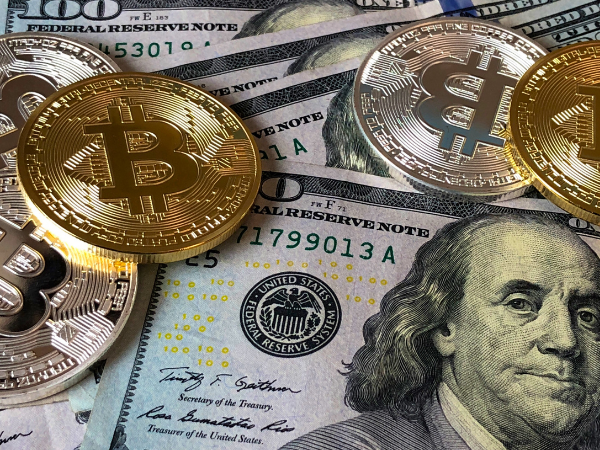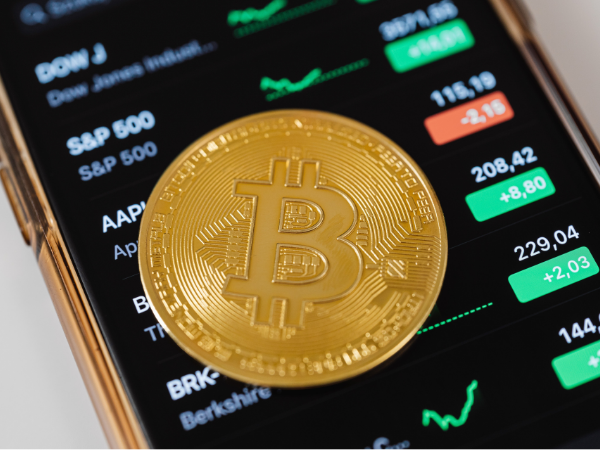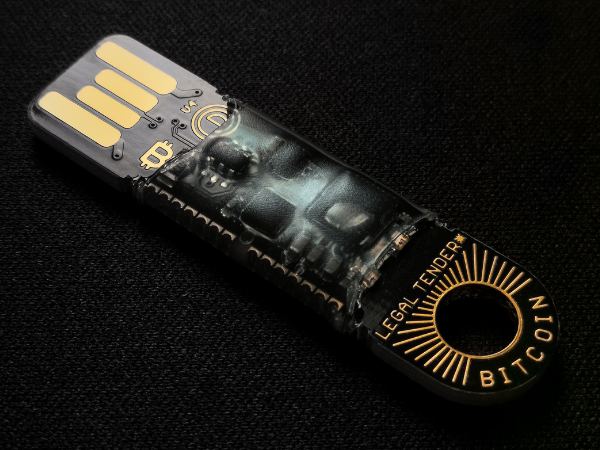What is a bitcoin ETF?
The first-ever bitcoin ETF came out on October 19, 2021, and it broke ground in its first two days! It built up $1 billion in assets within such a short time, making it the second-highest exchange fund ever. This exchange-traded fund is making waves in the cryptocurrency community as it could significantly boost adoption around the world.
If you already hold bitcoins, you might wonder why a bitcoin ETF is such a big deal. After all, people could always buy and sell bitcoin on crypto exchanges, right? Yet, it’s not that simple for your typical retail investor and business to invest in cryptocurrencies. A bitcoin ETF lets them trade these digital assets like conventional ones.
Let’s talk more about exchange-traded funds (ETFs) in general, so we can easily elaborate on the new bitcoin ETF. Later, we will explore the potential benefits and risks of this fresh asset. We will also compare it to bitcoin futures ETFs because it’s easy to confuse it with bitcoin ETFs. We will also explain other ways of investing in cryptocurrencies.
Why should I invest in a bitcoin ETF?

An ETF may contain various asset classes such as stocks, currencies, or even commodities. Others like bond ETFs focus on a specific type. Like its namesake, bitcoin ETFs are for bitcoins.
The first one came out on the 19th of October after getting the Securities and Exchange Commission’s blessing the day before. It came from ProShares with the ticker name BITO.
They work like index funds because they aim to match the performance indexes such as the S&P 500. What’s more, they make it easier to diversify your investments.
Instead of picking individual assets, you can just buy an ETF and have all you need in one package. Also, you’ll have an easier time trading the assets.
As the name suggests, ETFs are made for exchange trading. You can buy or sell ETF shares like the ones on stock exchanges. As a crypto investor, bitcoin ETFs may seem unnecessary.
As we said, it only takes a few steps to buy cryptos on online exchanges. Still, people outside the crypto world may need a bitcoin ETF because of the following reasons:
- Easier for companies – Let’s say you’re investing for your business. If you have shareholders, they might not be comfortable putting money in highly volatile assets like bitcoin. A Bitcoin ETF lets you invest in cryptos in a more well-known way, so shareholders are more likely to be fine with it.
- SEC approval – Laws regarding cryptos are a bit tricky at the moment, which is why people are still a bit iffy about cryptos. Fortunately, the recent bitcoin ETF provides investor protections due to its SEC approval, and it’s also easier to pay taxes for this.
- Bitcoin for retirement – With bitcoin ETFs, you can now add cryptos to your Roth IRA. Check your current plan before doing this because it may not allow such an asset.
What are the issues with bitcoin ETFs?
The NYSE welcomes @ProSharesETF in celebration of the first U.S. Bitcoin-Linked ETF $BITO https://t.co/0qh0NDS2d4
— NYSE 🏛 (@NYSE) October 19, 2021
Some investors may not like its downsides, though. Let’s talk more about these potential problems, so you can see if this type of asset is right for you:
- No ownership – The whole point of cryptos is to have a means of buying and selling things without government control. ETFs are subject to this, so it defeats the purpose of investing in bitcoin. Some folks prefer having the real thing in their e-wallets.
- Management fees – You will have to pay $10 every year for every $1,000 you invest in bitcoin ETFs, which is smaller than the fees in crypto exchanges.
- Buying altcoins – Bitcoin isn’t the only crypto nowadays, but that’s the only option in the latest bitcoin ETF. If you want to invest in Cardano, Dogecoin, or Ethereum, this may not be the best for you.
- Trading days – You can buy bitcoin and other cryptocurrencies 24/7, but you can’t do this with ETFs. Stock exchanges give a limited trading period, and if you place your orders outside that time, it will execute on the next trading day.
Read More: What Are The Uses Of Cryptocurrency?
Bitcoin futures ETF vs bitcoin ETF
If you search bitcoin ETFs on the internet, you may come across bitcoin futures ETFs. It’s easy to mistake them as the same, but they have major differences.
Let’s explain bitcoin futures contracts first so we can explain its ETF option. You could agree with another person to buy or sell an asset at a set date.
No matter if the price goes up or down, both parties have to follow the terms. This means either side will either lose or win. The futures contract or derivative tracks the price.
Let’s say you entered into the contract as a seller. If the value increases on the agreed-upon date, you’ll earn money, and otherwise, you’ll give up the asset for less money than it’s worth.
A bitcoin futures ETF follows the price of bitcoin (BTC), so the stakes are high. At the time of writing, it was $61,195.96, so that’s how much money is on the line!
This is why many investors frown upon this asset. Cryptocurrencies are well-known for their wild price movements. We kid you not. You could lose thousands of dollars in a matter of hours!
Even the top crypto analysts can’t reliably predict the market price changes. You can easily lose money with bitcoin futures ETFs. On the other hand, Bitcoin ETFs are a safer choice.
Its price moves along with bitcoin, but it doesn’t adopt the crypto price. At the time of writing, the ProShares Bitcoin Strategy ETF price is $39.21.
If you put the charts side-by-side, you’ll see that the ETF’s and the bitcoin price moved almost in sync. Yet, this is more affordable than crypto.
Other ways of investing in cryptos
Bitcoin ETFs let more people get exposed to cryptocurrencies without spending that much. Of course, exchange-traded funds aren’t the only way to invest.
As we said, you could just buy them straight from crypto exchanges. Setting up your first Binance or Coinbase account takes only a few steps.
They all have real-time price charts that let you place buy and sell orders easily. What’s more, you may conveniently check the metrics, such as the total amount bought and sold that day.
Aside from these, you could invest in other assets that are linked to cryptos. For example, you might want to buy stocks from blockchain companies.
These firms are likely to perform well as crypto adoption spreads around the world. Investing in their stocks allows you to profit from cryptos without holding them yourself.
Related Articles
Final thoughts
This article is for educational purposes only. If you’re interested in investing, plan and research the assets yourself. Never spend the money you are not willing to lose.
Of course, you don’t have to limit yourself to cryptocurrencies. Conventional assets could help you reach your investment objectives easier. Take mutual funds, for example.
They try to beat market indexes instead of following them closely. Yet, mutual funds also contain all sorts of assets, so they provide benefits similar to index funds and ETFs.
Check out our other articles to see the other options available, such as stocks, bonds, and real estate. Create the best mix to get the most out of your portfolio.
If you are interested in content marketing, please email Anthony@Inquirer.net
Sponsored Advertising Content:
Advertorial or Sponsorship User published Content does not represent the views of the Company or any individual associated with the Company, and we do not control this Content. In no event shall you represent or suggest, directly or indirectly, the Company's endorsement of user published Content.
The company does not vouch for the accuracy or credibility of any user published Content on our Website and does not take any responsibility or assume any liability for any actions you may take as a result of reading user published Content on our Website.
Through your use of the Website and Services, you may be exposed to Content that you may find offensive, objectionable, harmful, inaccurate, or deceptive.
By using our Website, you assume all associated risks.This Website contains hyperlinks to other websites controlled by third parties. These links are provided solely as a convenience to you and do not imply endorsement by the Company of, or any affiliation with, or endorsement by, the owner of the linked website.
Company is not responsible for the contents or use of any linked website, or any consequence of making the link.
This content is provided by New Start Advantage LLC through a licensed media partnership with Inquirer.net. Inquirer.net does not endorse or verify partner content. All information is for educational purposes only and does not constitute financial advice. Offers and terms may change without notice.



